Learn About The Plastics Treaty ➝
Protect our planet! Last chance to join the call for a strong Plastics Treaty. SIGN THE PETITION NOW.
CSOs call upon ASEAN leaders to take a strong stance in the ongoing negotiation to develop an international legally binding instrument to address plastic pollution, including in the marine environment.
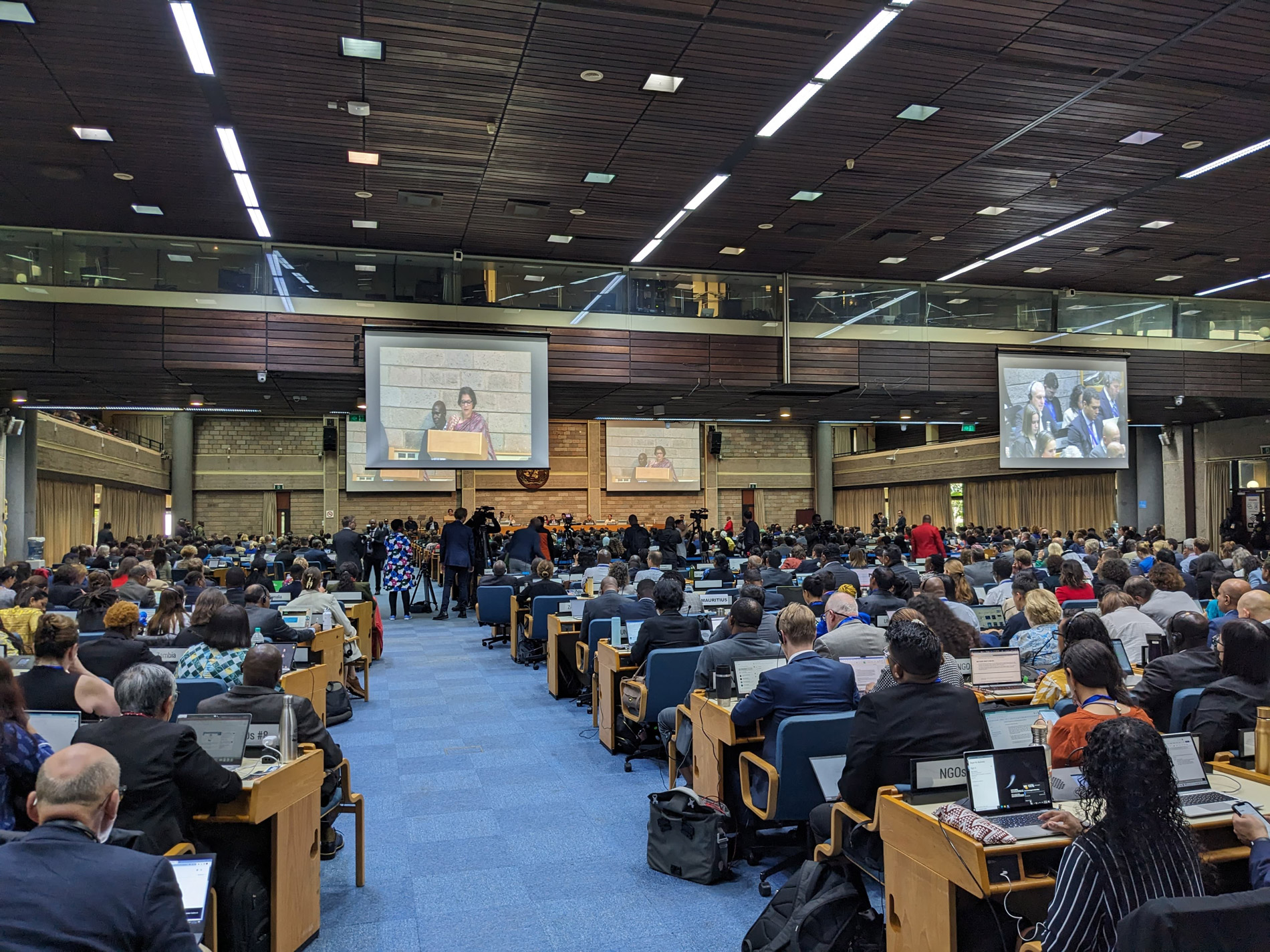
© Fenceline Watch
Between 23-29 April 2024, members of the Association of Southeast Asian Nations (ASEAN) will meet with other countries in Ottawa, Canada, for the fourth session of the Intergovernmental Negotiating Committee (INC-4) meeting to develop text for an international legally binding instrument known as the Global Plastics Treaty to address plastic pollution, including in the marine environment, through a comprehensive approach that addresses the full life cycle of plastics. The prospective instrument is a once-in-a-lifetime opportunity to solve the plastic crisis.
As a region, Southeast Asia is severely impacted by pollution caused at various stages in the plastic life cycle. Several reports and studies have shown how petrochemical industries, plastic manufacturing, plastic consumption and usage, plastics recycling, incineration and disposal, are sources of harm to the environment and health of people in Southeast Asia.4 Plastic pollution occurs in many forms from macroplastics in the Mekong River and the seas, to microplastics and additives or unintentional releases from plastic waste management and recycling such as persistent organic pollutants (POPs).5,6 Unsanitary landfills, and illegal dumpsites with hazardous electronic waste impact people in Malaysia.7 Discarded or lost fishing gears made from plastics affect marine ecosystems in Cambodia, Myanmar, and Vietnam.8 Microplastics and POPs have already both been found in the bodies of people in Indonesia and Thailand.9,10 All these pose an imminent and serious threat to public health in our region.
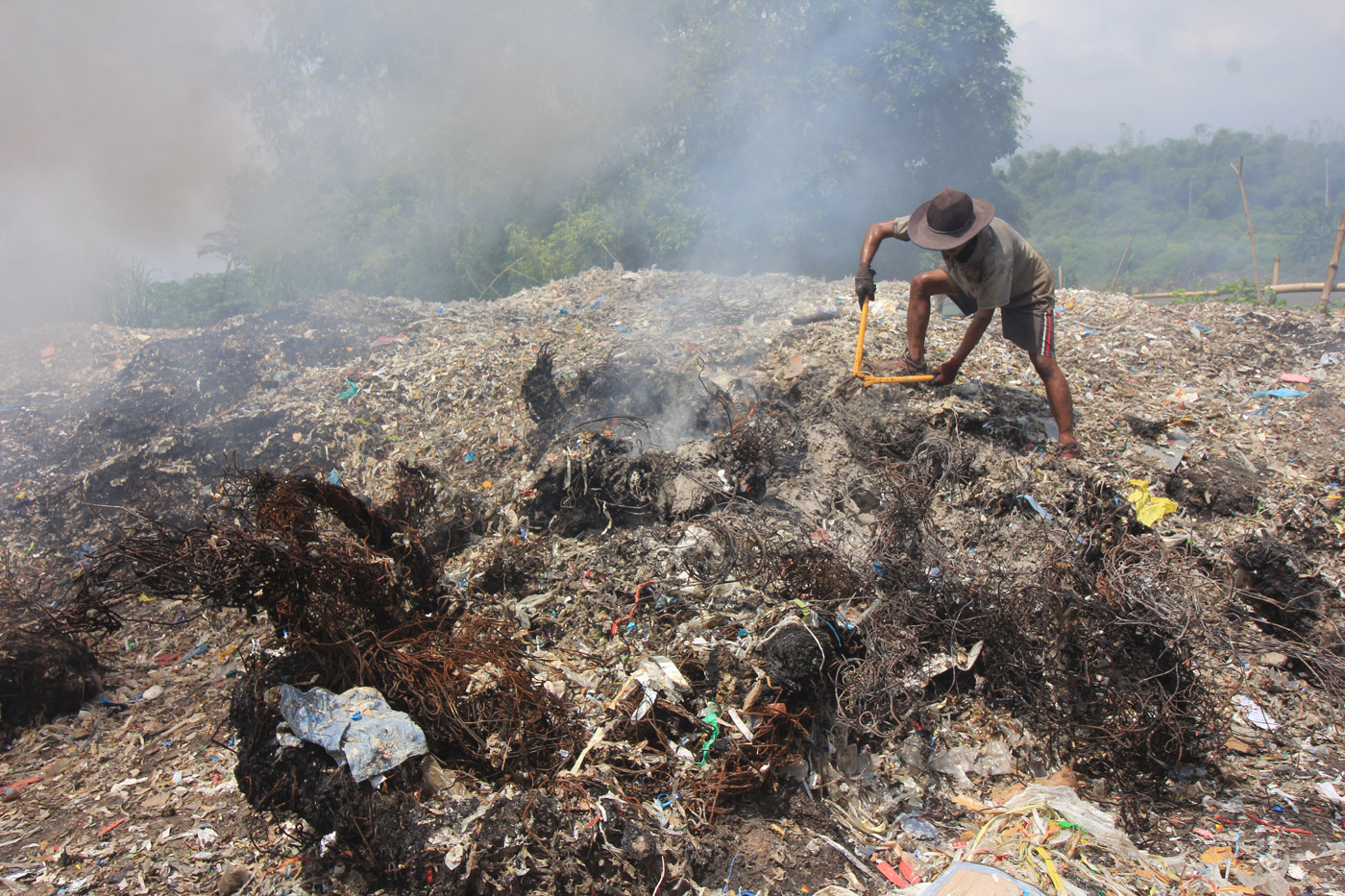
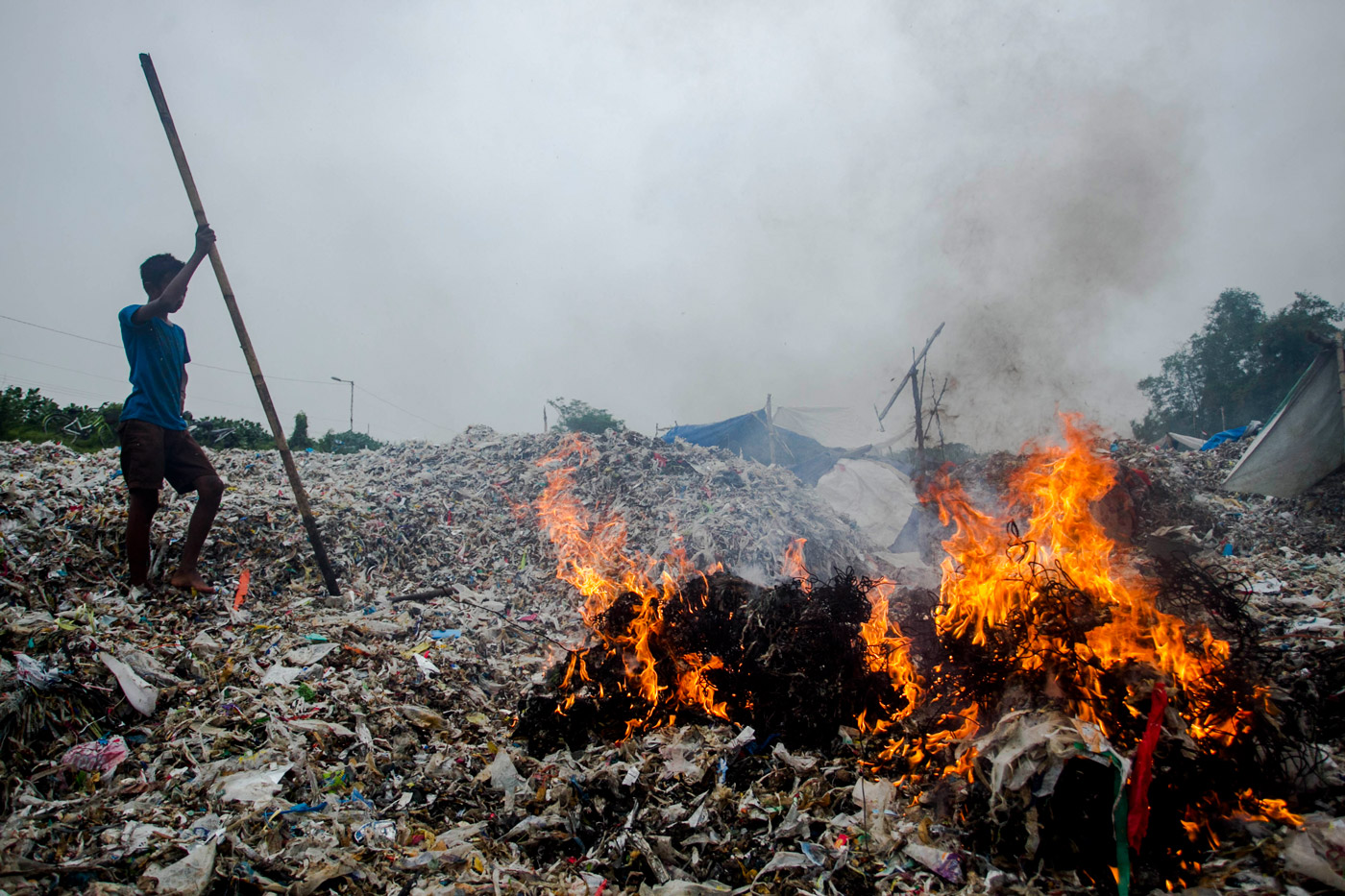
© ECOTON
Southeast Asia is also impacted by plastic waste imported from other regions, with developed nations such as the United States, Japan, China, and European nations included among the major exporters.11 Plastic waste exported by developed nations is not only shipped as plastic waste, but also mixed in waste paper bales as non-recyclable flexible plastic scraps, snack packs and dirty plastic cups and bottles, or multilayered plastic pouches, even soiled diapers.12 These “impurities” - which likely contain a significant amount of plastics - in paper waste shipped from Europe, can make up to 10% of the total volume.13 Large quantities of plastics could also be hidden in paper imports, as is the case in the illegal export of 130 tons of municipal waste - falsely declared as paper - from Australia to Thailand in 2022.14 There have also been trends in exporting plastic waste as fuel or Refuse Derived Fuel (RDF) from developed countries, undermining the effort of In Southeast Asian nations to resist waste colonialism.15 Tracking of trade in plastic waste in various forms can be notoriously difficult, especially along porous borders in the region, such as that between Myanmar and Thailand.16
It is essential that Southeast Asian leaders challenge the false narratives that blame our region for contributing to ocean plastic pollution while disregarding the impact of their plastic waste exports to us, and the fact that the biggest plastic polluters are large FMCG corporations from the Global North.
Our region has a recent collective history of using natural materials, and is a fertile ground for environmentally sound, economically beneficial, and citizen-led solutions to the plastic crisis. These include zero waste solutions that are already up and running in Hoi An, Vietnam17, reuse pilots in Manila, Philippines18, reuse systems in Jakarta, Indonesia19, and water refill infrastructures in Bangkok, Thailand, the latter with the support of the Bangkok Metropolitan Authority. 20Aside from local governments, national governments in our region have shown ambitions to lead the way in implementing policies to curb plastic pollution, and have individually made strong statements in past INCs. ASEAN has also voiced its collective ambition to combat plastic pollution as a region.21
Evidently, our region has strong solutions and strong ambitions that may not only solve the plastic crisis here but elsewhere in the world. It is time for the ASEAN countries to collectively voice their ambition to end plastic pollution at INC-4. The African region and the Small Islands Developing States have already done so in past INCs to remarkable impact.
© Basilio Sepe / Greenpeace
EcoWaste Coalition
IPEN Southeast Asia and East Asia
BAN Toxics
ECOTON
Wahana Lingkungan Hidup Indonesia (WALHI)
Basel Action Network
Consumers' Association of Penang
Sahabat Alam Malaysia (Friends of the Earth Malaysia)
Zero Waste Malaysia
GAIA (Global Alliance for Incinerator Alternatives)
Green Party of the Philippines (GPP KALIKASAN MUNA)
Bayanihan Para sa Kalikasan Movement, Inc.
Zero Waste Baguio Inc.
Health Care Without Harm Southeast Asia
Ecological Alert and Recovery - Thailand (EARTH)
Interfacing Development Interventions for Sustainability (IDIS)
Persatuan Tindakan Alam Sekitar Kuala Langat
Aliran
Myanmar Ocean Project
Trash Hero Thailand
RSM Việt Nam
Green Vientiane
Pertubuhan Pelindung Khazanah Alam
Environmental Investigation Agency
Women Engage for a Common Future
Nexus3 Foundation
Te IPukarea Society
Zero Waste Sabah
Vietnam Zero Waste Alliance
Health and Environment Justice Support (HEJ Support)
OSHE Foundation
Caribbean Poison Information Network
Thant Myanmar
Greenwomen Analytical Environmental Agency
Center for Public Health and Environmental Development (CEPHED)
Environment and Social Development Organization - ESDO
groundWork, Friends of the Earth South Africa
NGO - Foundation to support civil initiatives
Taller Ecologista
Hamraah Foundation
Action des Femmes pour une Planète Bio (AFEPB)
Center for Renewable Energy and Sustainable Technology (CREST) Philippines
Free Tree Society
Save Sierra Madre Network Alliance Inc.
Aotearoa Plastic Pollution Alliance
Environmental Justice Foundation (EJF)
Center to Combat Corruption and Cronyism (C4 Center)
Greenpeace Southeast Asia
National Fisheries Solidarity Movement
Association For Promotion Sustainable Development
Centre for Environmental Justice
Chemical Safety Agency
DONRE Hoi An
All India Kabadi Mazdoor Mahasangh (AIKMM)
Greeners Action
Dietplastik Indonesia
Blue Dalian
Sustainable Menstruation Kerala Collective
Gabungan Darurat Iklim Malaysia
Alliance of River Three
BioThai Foundation
Community Action Against Plastic Waste ( CAPws)
Citizen consumer and civic Action Group (CAG)
Parti Sosialis Malaysia
Korea Zero Waste Movement Network
Jaringan Rawang Tolak Insinerator
CLEAN UP NEPAL
Eco Circular India Foundation
Trash Hero Indonesia
Wonjin Institute for Occupational and Environmental Health
Just Transition Alliance
Asia Monitor Resource Centre
Nam Phong River Restoration and Conservation Network
Zero Waste Himalaya
Youth Health Hub Indonesia
GreenativeX
Center for International Environmental Law (CIEL)
Stree Mukti Sanghatana
Pro Public
Persatuan Pendidikan dan Kebajikan Jaringan Nelayan Pantai Malaysia (JARING) Malaysian Coastal Fishermen's Network Education and Welfare Association
AEEFG
The network for carcinogen-free Society S.Korea
Pesticide Action Network (PANA) Africa
OSEAN (Our Sea of East Asia Network)
Health Environment and Climate Action Foundation (HECAF360)
WEMASA TANZANIA
Faith and Hope Association
Human Environmental Association for Development (HEAD)
TOXISPHERA ENVIRONMENTAL HEALTH ASSOCIATION
Developers Foundation Inc.
Trash Hero Malaysia
Gita Pertiwi
Nol sampah surabaya (aliansi zero waste Indonesia)
Samyukta Safai Jagaran
World Cleanup Day North Sumatera
ENLAWTHAI Foundation (EnLAW)
Malaysian Nature Society Selangor Branch Green Living Special Interest Group
ENVIRONMENTAL PROTECTION SOCIETY MALAYSIA (EPSM)
Yaksa Pelestari Bumi Berkelanjutan
Arnika – Toxics and Waste Programme
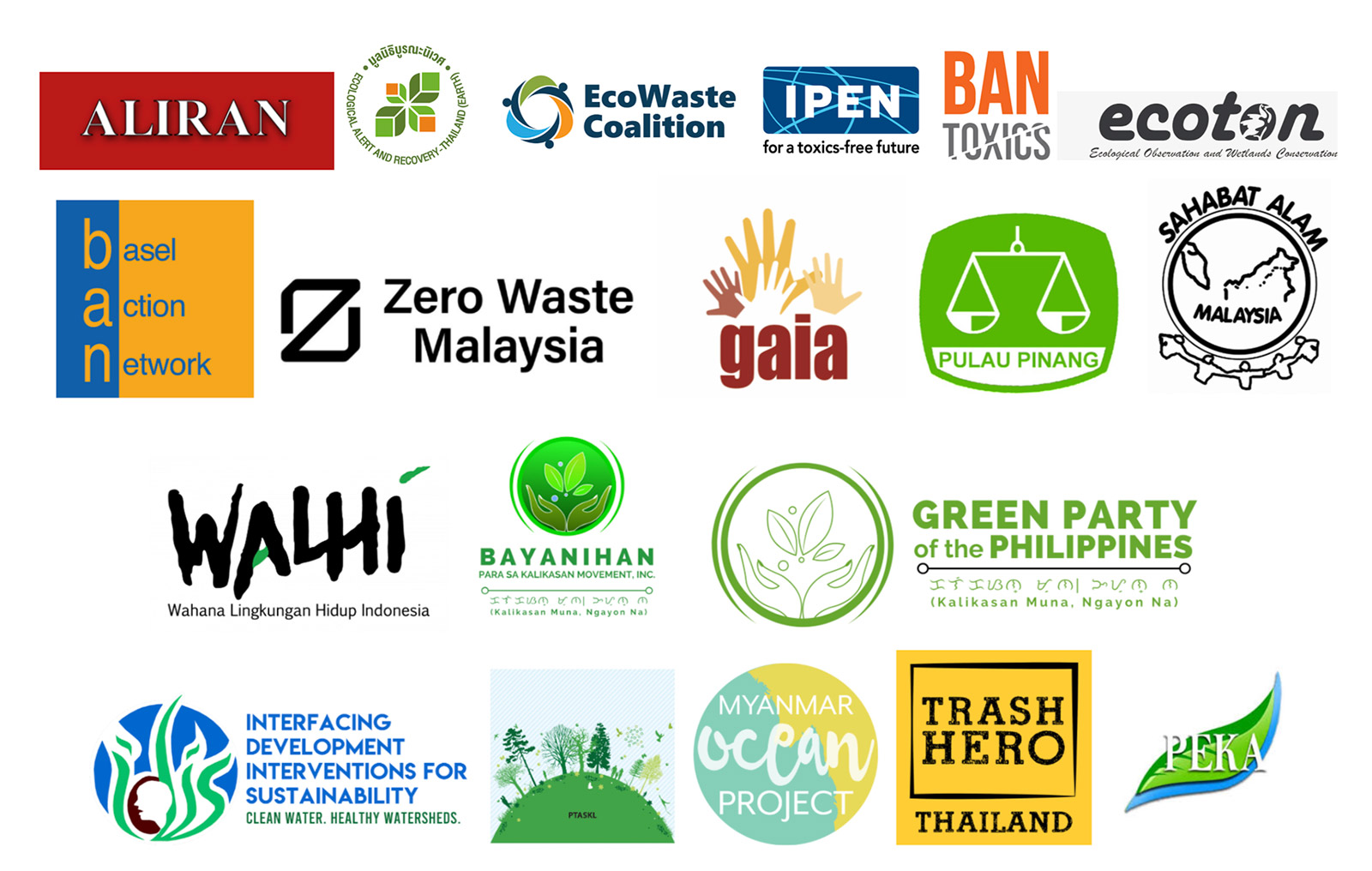
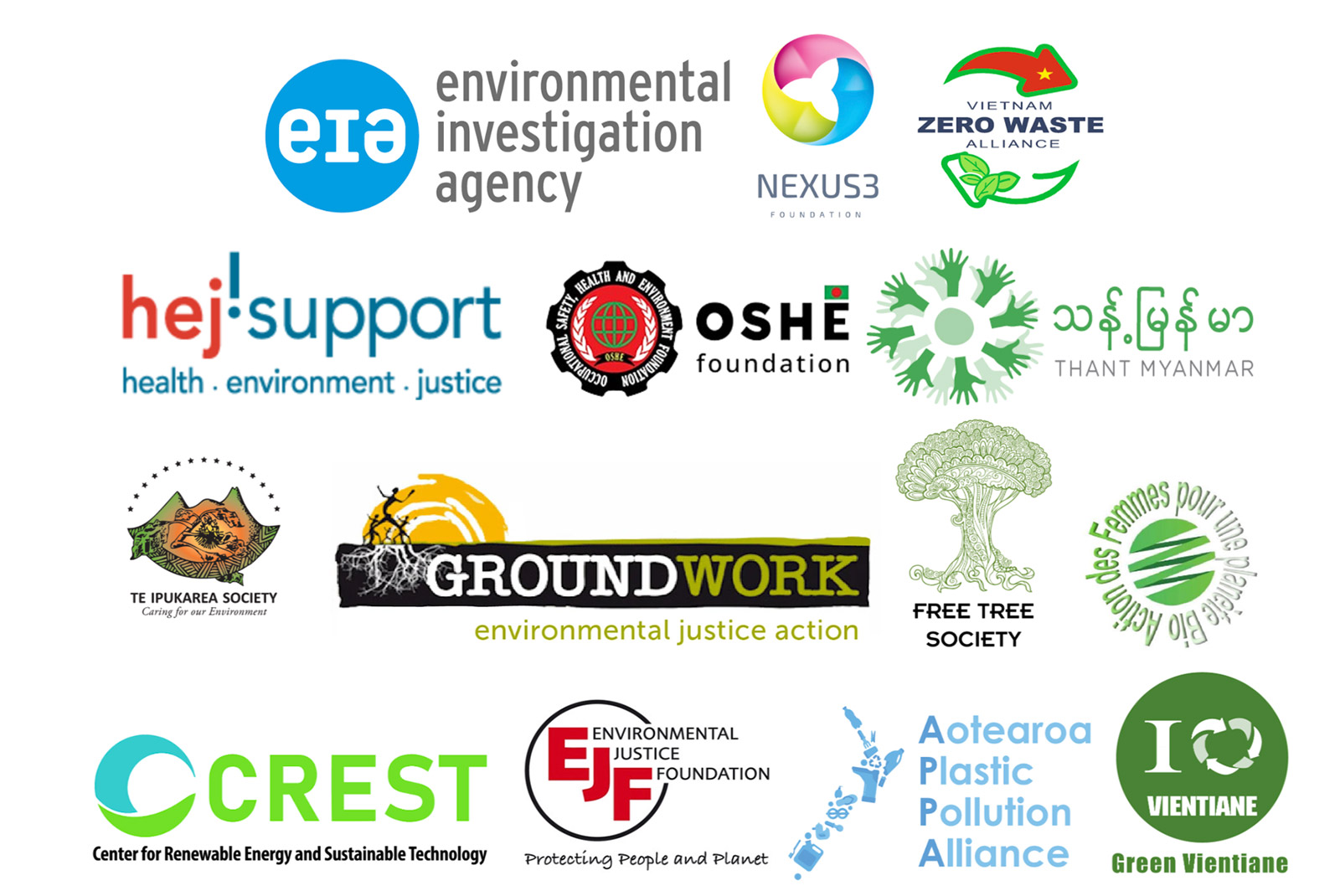
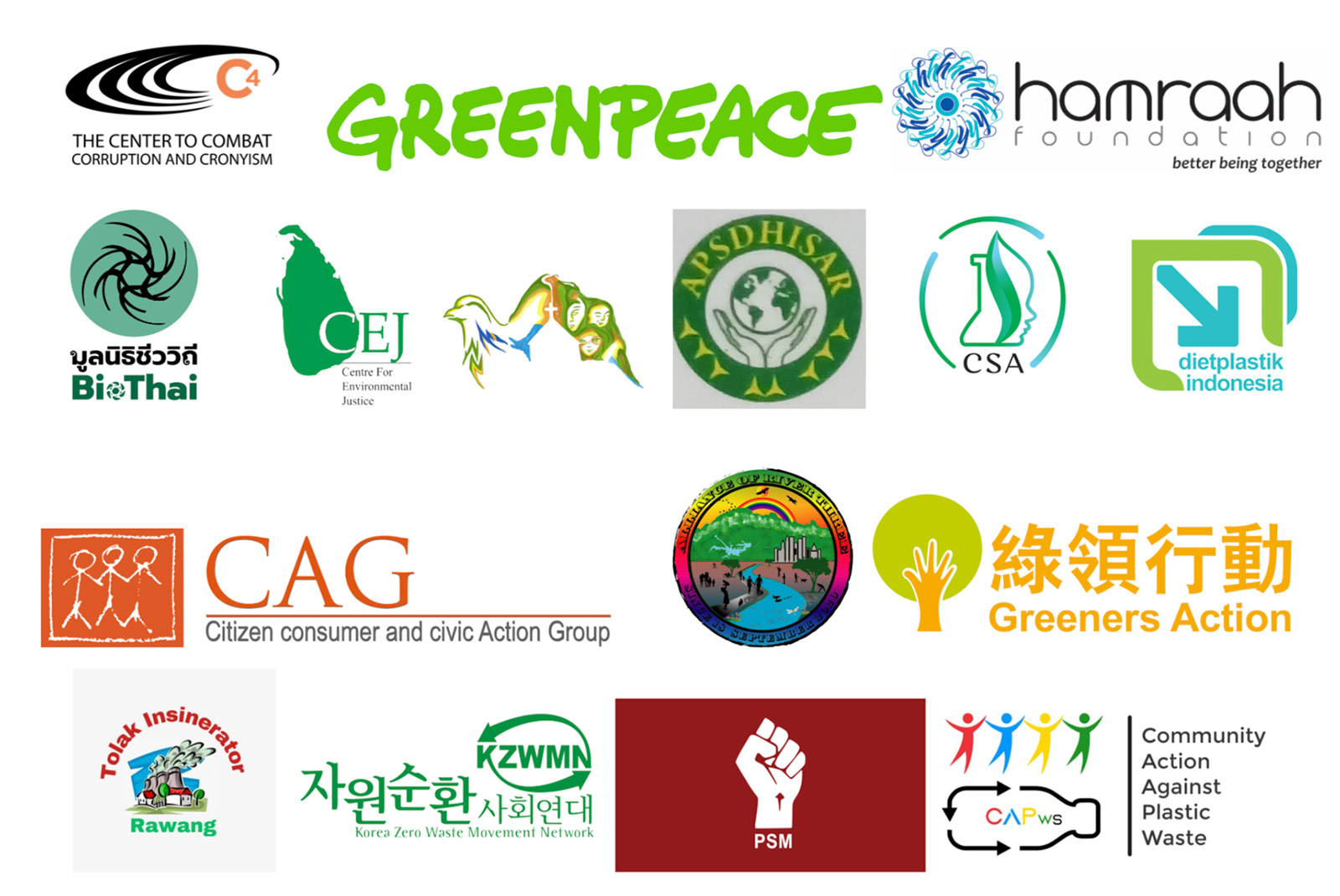
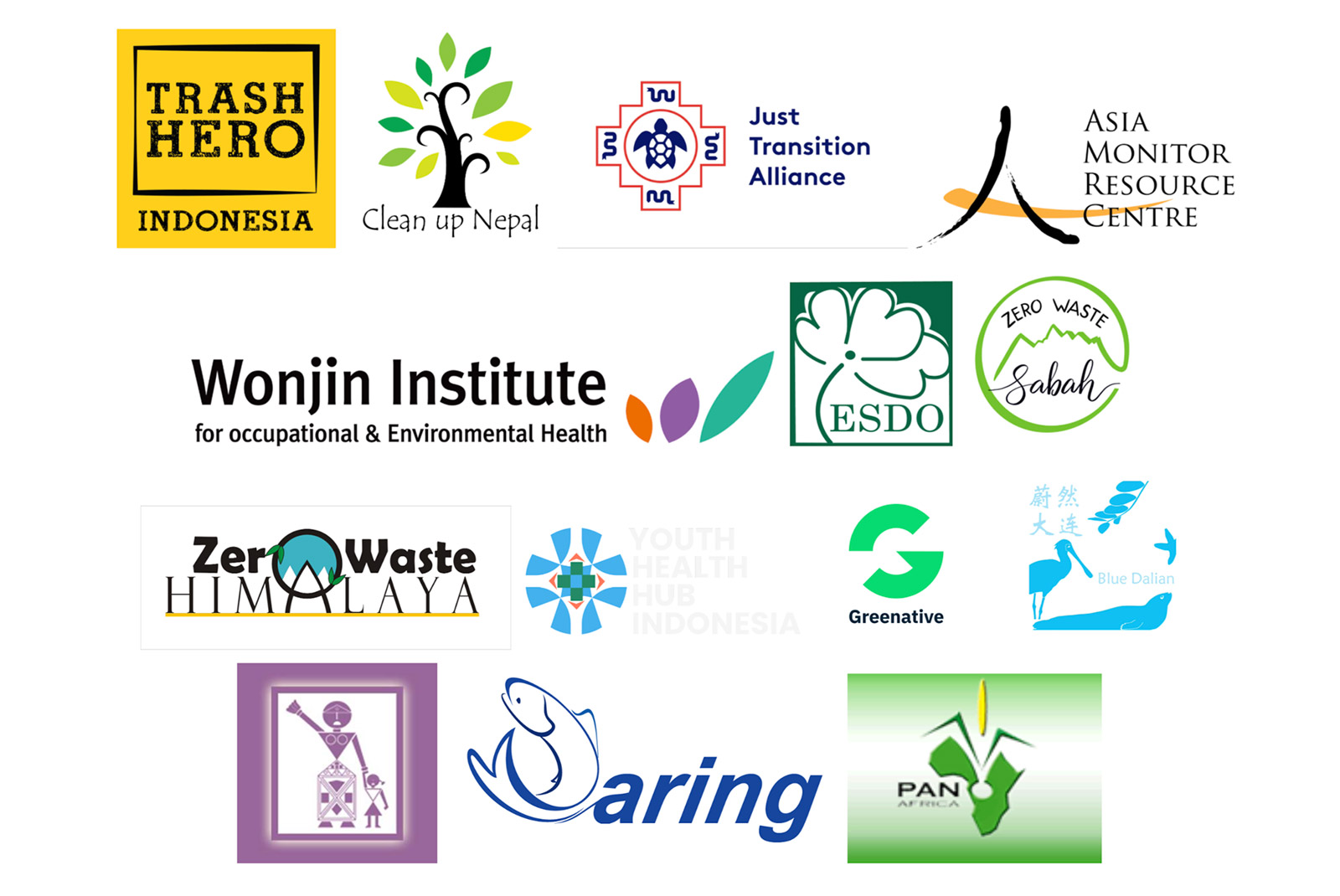
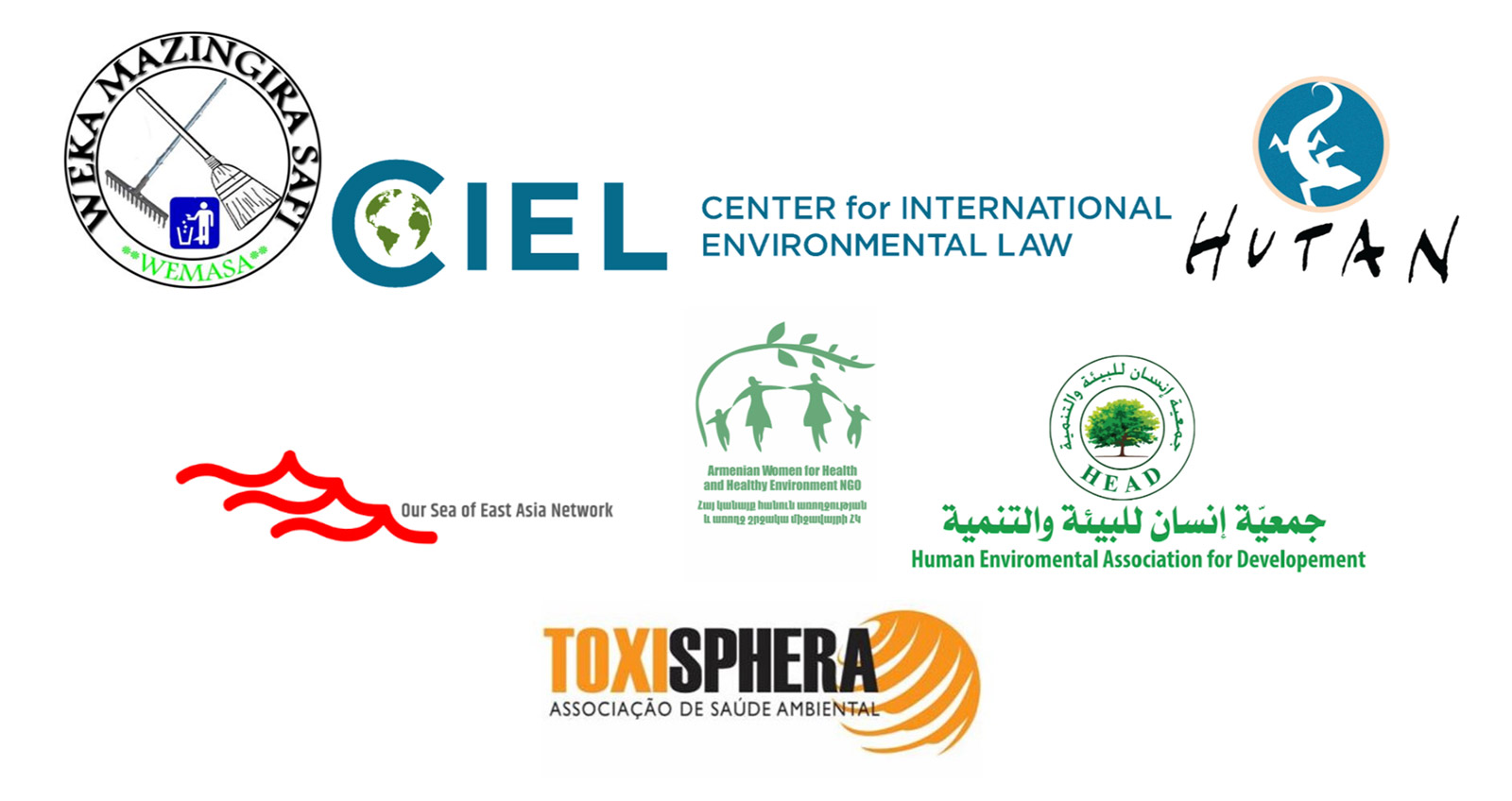
CONTACT
Eah Antonio
eah@breakfreefromplastic.org
+63 927 827 7960